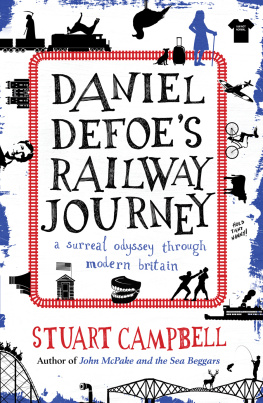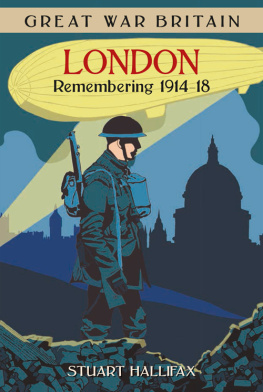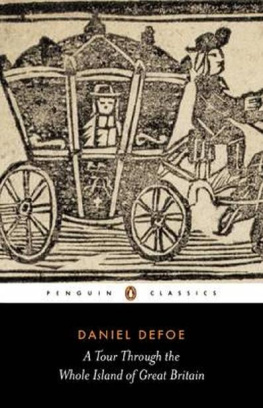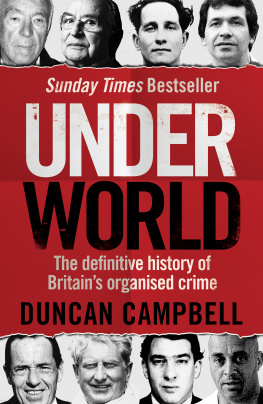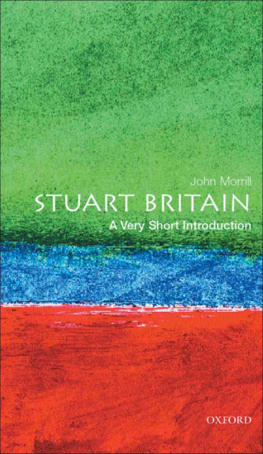I must thank John, my friend and travelling companion, without whose organisational skills and patience this book would not have happened. I also acknowledge Roys gentle encouragement and advice. Most of all I am extremely grateful to the 250 innocent passengers who willingly shared their stories with an eccentric OAP.
Every mile of railway in mainland Britain. Ridiculous.
This was the thought that woke me in the middle of the night. The feeling was one of panic and disbelief at my own stupidity.
The rest of the night was spent dreaming of spiders; huge buggers crawling over my hand. Eventually their black thread legs morphed into veins. A vast matrix of pulsing capillaries along which I was committed to travelling. Each bent gossamer of blood represented a journey that I would make. By a process of dreamers alchemy, my hand melted into a map of the UK. My thumb elongated into Cornwall. My middle finger followed the Pennines and stretched up towards Caithness.
My heart seemed to be beating faster than usual. There was still an element of panic in the thought of what lay ahead. This was not a sanitised itinerary chosen by TV executives. This was to be an act of attrition, an obsessive daunting voyage along every mile of accessible rail track. This was going to hurt.
My motivation for this monstrous task remained a mystery. Partially, I was seduced by an image of myself as a chronicler of the mundane and the surreal; a jovial and eccentric completest; an older sort of Blue Peter presenter who would engage complete strangers in jolly banter in exchange for their secrets.
I knew that talking to strangers would be the key to what I hoped to achieve. To an extent, we all talk to strangers, in bus queues, in shops. We have unwanted functional exchanges with unknown people working in call centres; difficult exchanges with traffic wardens and HMRC officials; pleasant exchanges with moonlighting students who take our orders in cafes. But our busy and troubled times offer few opportunities to listen for any length of time, and without judgement, to the thoughts and preoccupations of strangers. In the main our conversations are confined to family, friends, neighbours and work colleagues.
I have fond memories of hitch-hiking the length of Britain from my home in Gloucestershire to my university in Aberdeen in the 1960s. The M6 was unfinished and the M5 only existed in a dreaming architects pipe. On occasions, when I was feeling seriously homesick, the journey would devour most of the weekend and permit me no more than a quick cup of coffee with my parents before I set off again. But the journey itself was the thing.
Hitch-hiking was an accepted phenomenon; an innocent pursuit untrammelled by tabloid tales of vulnerable people being dismembered and left in ditches. Lorry drivers were the undisputed kings of the road and could pick up whom they wished without fear of dismissal for sharing their cab with non-company employees. And the tales. Truckers, travelling salesmen, and men working away from home, would pour out their hearts to this innocent eighteen-year-old who knew nothing about infidelity, or marital troubles. It was as if my presence alone provided a catalyst for confessional monologues and lengthy anecdotes about politics (I only had the vaguest notion who Enoch Powell was). And of course football, about which I knew much more.
Having climbed down from a warm cab I would stand in a lay-by, reeling from the latest weight of disclosure and trenchant views, and hold out my thumb in the direction of whichever driver next felt the need to unburden himself.
Even then I reflected on what this meant. To an extent we can choose our identity, or at least accentuate those aspects of our personality with which we are most at ease, when talking to a stranger whom we will never see again. This is not to impute deception, rather it is to acknowledge that, on occasions, there are therapeutic advantages to be gained from stepping away from the mundane preoccupations that consume us all, and project more of the person we would like to be for the benefit of a stranger.
I wanted to recreate these discussions by travelling across the entire rail network of this island, and see what I could glean about people. It is arrogant to imply that somehow I wanted to take the pulse of the nation by talking to strangers on trains, but to an extent this was the truth.
I had few preconceptions as to the mechanics of engaging random strangers in conversation. I had rehearsed a few potential opening gambits in my head: Hello, Im writing a book. Tell me about your life. Do you come here often? I mean, do you travel on this train often? Hello, do you have a moment to tell me your secret preoccupations, your ambitions, your dreams... This was going to be problematic.
From the years spent working as a mental health professional I liked to think that I could give something back to any strangers who were willing to tell me about their lives. I would be an attentive listener; I would do my best to listen with empathy and without judgement to whatever they chose to tell me. Research has consistently shown that being listened to non-judgementally is such a rare phenomenon as to carry therapeutic benefit. This would be the least I could do for the travellers who might contribute to this book.
There was another problem; despite an extrovert persona I remain inveterately shy, and genuinely find it difficult talking to strangers. This will be a challenge then.
There was of course a darker reason for wanting to embark on endless train journeys. Part of me has always felt the need, at all costs, to keep moving; to avoid being found out or held to account, for what I didnt know.

